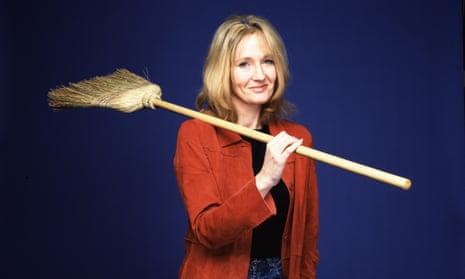Proofreaders may be worth their weight in gold to authors, but their oversights have proved lucrative for some lucky readers of JK Rowling. On Thursday, an uncorrected proof of her debut novel, Harry Potter and the Philosopher’s Stone, with the writer’s name was misspelled as “JA Rowling”, became the latest muddled copy to fetch four figures at auction.
It sold for just under £10,000, which means it is not the most valuable mistake in the boy wizard’s canon. That honour goes to a rare first edition with the word “philosopher” misspelled on the back cover, which was snapped up in 2016 by a London-based businessman for £43,750.
Mistakes in early editions may add value to Rowling’s work, but they rarely do more than make the reader laugh, which is the true value of a well-placed typo.
One of the best literary malapropisms in print appears in Theodore Dreiser’s 1925 classic An American Tragedy. In a passage of which Bad Sex award-winner Morrissey would be proud, two characters dance “harmoniously abandoning themselves to the rhythm of the music – like two small chips being tossed about on a rough but friendly sea”. Dreiser omits whether those chips were served with curry sauce.
The American novelist is not the only literary heavyweight to litter his work with errors. The most shocking thing about Henry Miller’s tale of sex and seduction in Paris, Tropic of Cancer, was the number of mistakes to be found in the 1961 first edition. In first editions of The Road, Cormac McCarthy offers this inexplicable image: “A moment of panic before he saw him walking along the bench downshore with the pistol hanging in his hand, his head down.” For “bench” read “beach”.
Some apparent typos are deliberate – though it can be hard to tell. Given that much of James Joyce’s Finnegans Wake makes little sense anyway, it is hard to spot an error by Joyce’s friend Samuel Beckett, to whom he dictated the novel. During one of their dictation sessions, Joyce answered a knock at the door with “Come in” – which Beckett promptly wrote down. Despite making even less sense than much that had gone before, Joyce liked the error and left it in the final version.
Whether by gods of literature or the God of the Bible, mistakes have a habit of appearing in books like molehills in a lawn. The most notorious one in the Good Book appeared in a 1631 edition, known since as the Wicked Bible because the typesetters failed to add the word “not” to the 10 Commandments, leaving the pious free to steal, murder and commit adultery.
But the king of all typo-riddled books is Jonathan Franzen’s 2010 novel Freedom. HarperCollins wound up pulping the entire first print run of 80,000 copies after it emerged that an early version of the book was sent to the printers by mistake. As a result, the book teemed with hundreds of mistakes in grammar, spelling and even characterisation.
The Corrections author discovered the catastrophe surrounding his eagerly anticipated book in a brutally public way. Recording a reading for the BBC current affairs show Newsnight, Franzen came to an abrupt halt and said: “Sorry, I’m realising to my horror that there’s a mistake here that was corrected early in the galleys and it’s still in the fucking hard cover of the book.”
Anyone who held on to that edition of the book would have been better exchanging it. As rare book dealer Rick Gekoski predicted in the Guardian at the time the big print run meant that the mistakes had “zero premium … I wouldn’t give you 50p extra”, he said. Seven years on, he has been proved right: the most valuable first editions of Freedom that appear on Abebooks are copies published as the author intended.

Comments (…)
Sign in or create your Guardian account to join the discussion